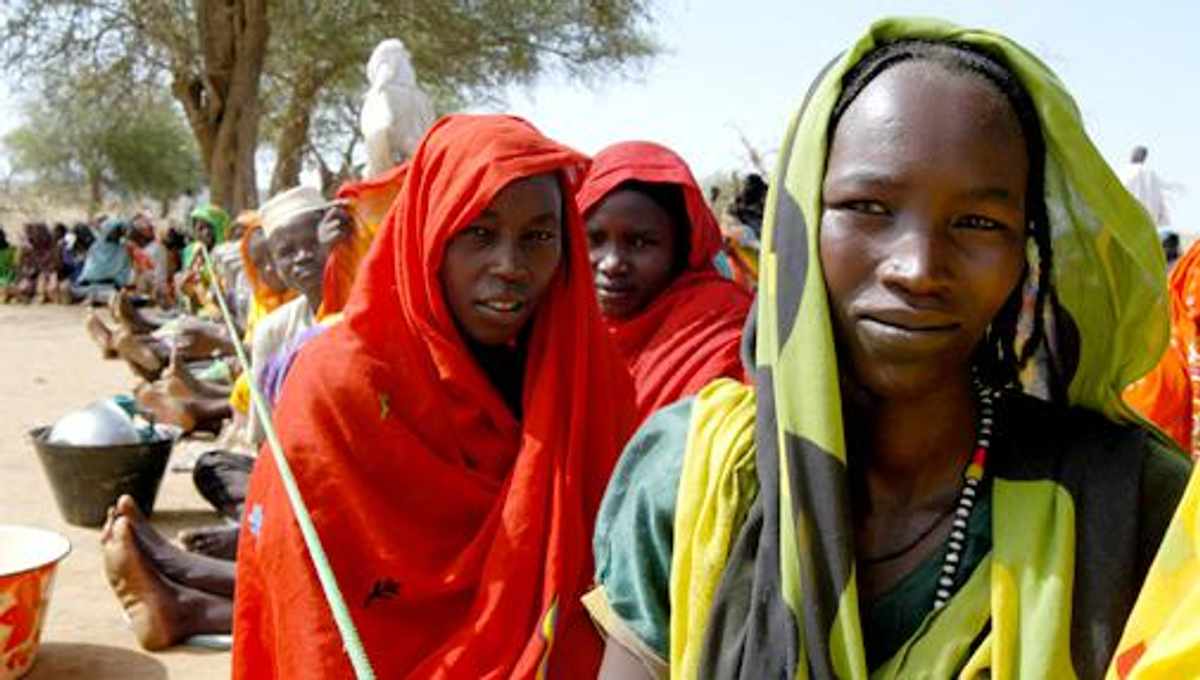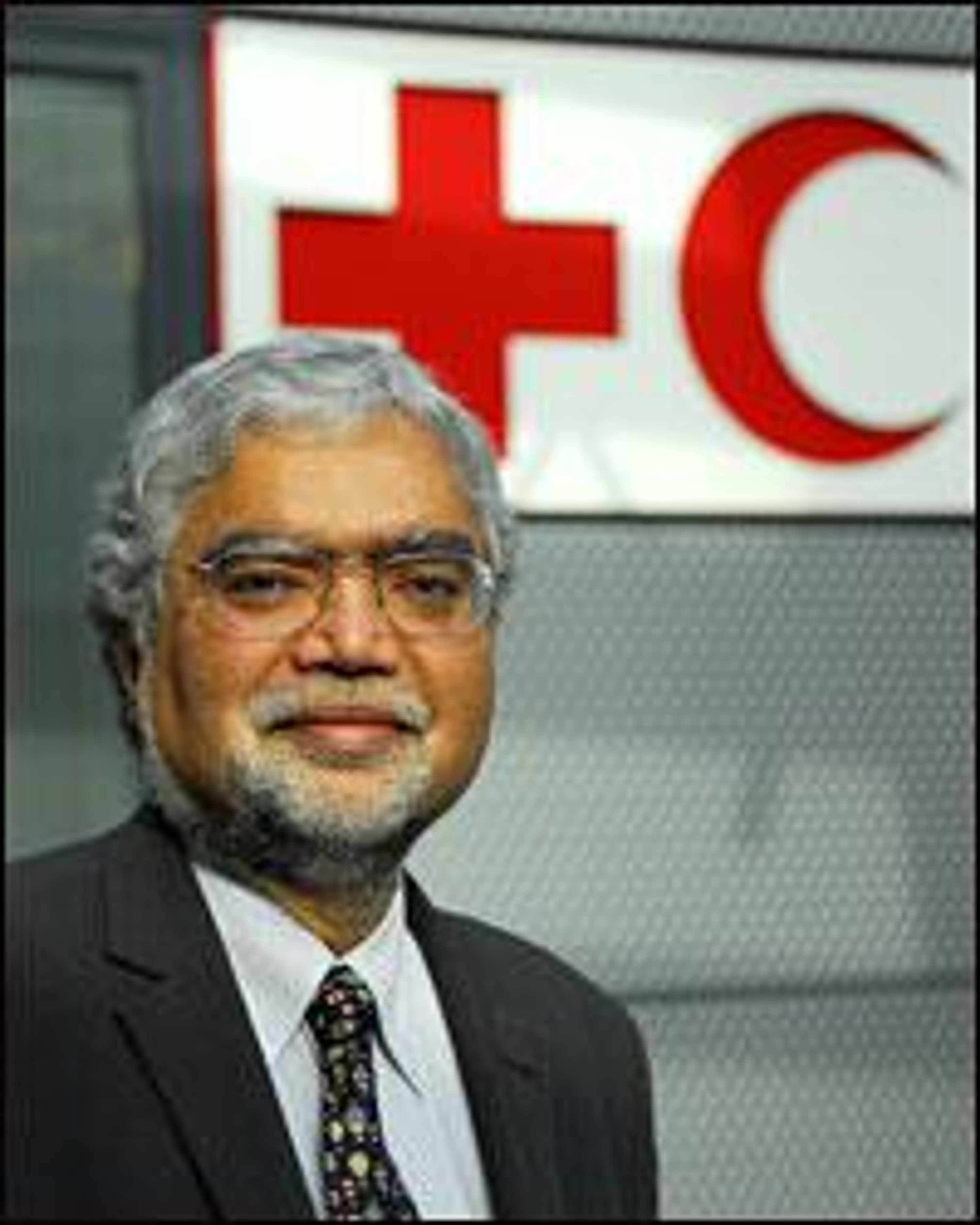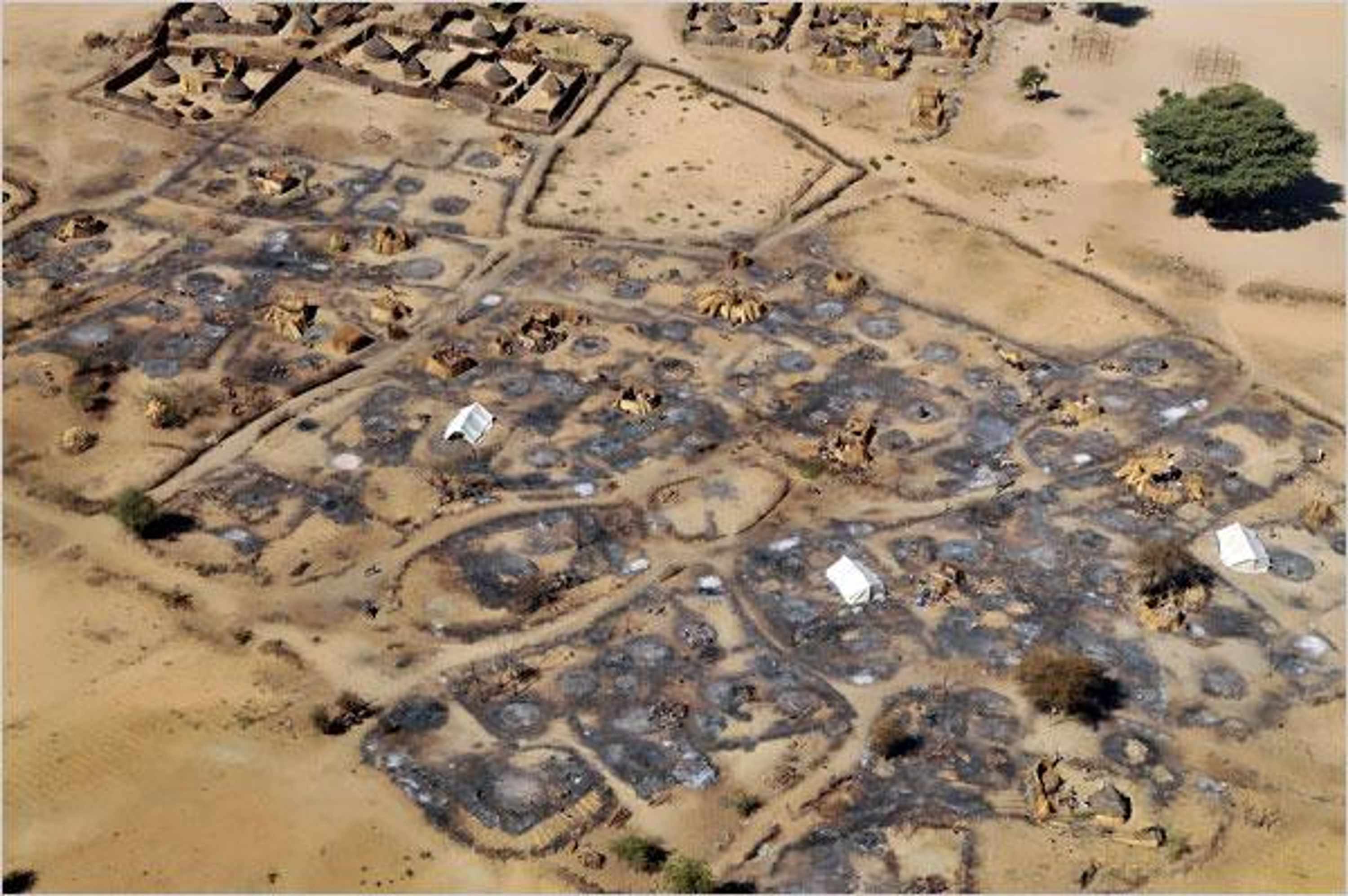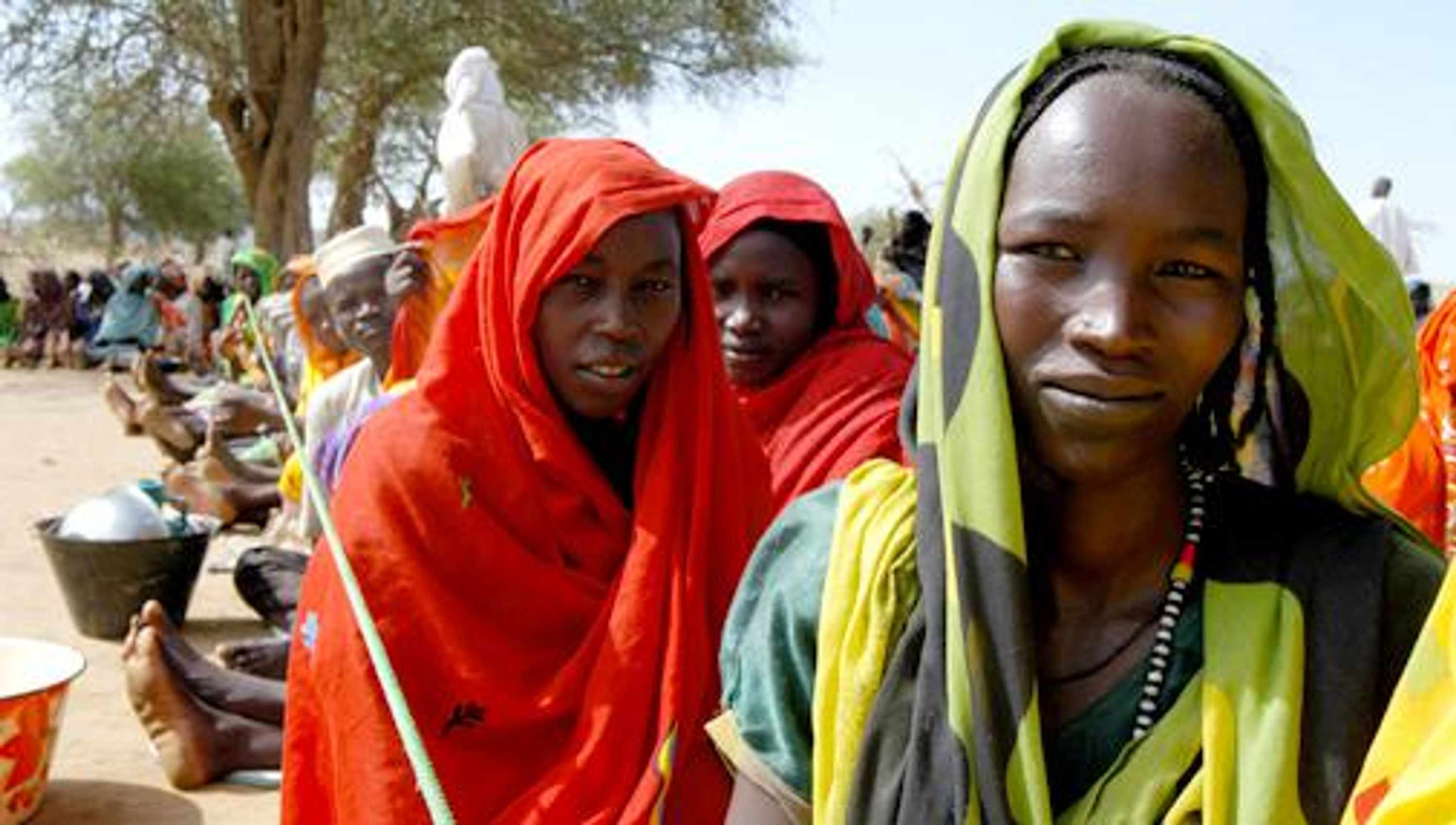The first genocide of the 21st century never ended.
The first genocide of the 21st century never ended.

http://youtu.be/WEUWU8JwnDI  Mukesh Kapila bears witness to the worst crimes against humanity, yet he has emerged from the darkness a testament to hope - _one person's actions can make a difference. _ His new book chronicles events up to when he blew the whistle, in 2004, on the Sundanese Government's attempt to eradicate the Darfuris. His shocking new revelation is that despite being known to the international community the perpetrators are still at large and have now turned their sinister attentions to the Nuban tribes of the south, albeit with enhanced weaponry and surveillance. Kapila's career has, several times, brought him face to face with genocide - where the machines of war are systematically turned on civilian populations with the ambition of annihilation. Twice he saw the UN frozen into horrendous inaction as the frenzied violence erupted all around. And worse, in Shrebrenica the UN actually opened the gates of a refugee camp in its designated "safe area" allowing 8000 Bosnian Muslims to be loaded into trucks to be taken to extermination camps in the worst single massacre in Europe since the Holocaust. In 1994, Kapila entered Rwanda working for DFID to distribute aid from the British government. Behind a curtain in a crowded hospital he discovered a once proud Tutsi women and her child. Both had not spoken a word since being gang raped by Hutus. These intimate encounters with the terrified and traumatised would shape Kapila's attitudes and strengthen his resolve. He vowed never to let it happen on his watch. [caption id="attachment_4034" align="aligncenter" width="600"]
Mukesh Kapila bears witness to the worst crimes against humanity, yet he has emerged from the darkness a testament to hope - _one person's actions can make a difference. _ His new book chronicles events up to when he blew the whistle, in 2004, on the Sundanese Government's attempt to eradicate the Darfuris. His shocking new revelation is that despite being known to the international community the perpetrators are still at large and have now turned their sinister attentions to the Nuban tribes of the south, albeit with enhanced weaponry and surveillance. Kapila's career has, several times, brought him face to face with genocide - where the machines of war are systematically turned on civilian populations with the ambition of annihilation. Twice he saw the UN frozen into horrendous inaction as the frenzied violence erupted all around. And worse, in Shrebrenica the UN actually opened the gates of a refugee camp in its designated "safe area" allowing 8000 Bosnian Muslims to be loaded into trucks to be taken to extermination camps in the worst single massacre in Europe since the Holocaust. In 1994, Kapila entered Rwanda working for DFID to distribute aid from the British government. Behind a curtain in a crowded hospital he discovered a once proud Tutsi women and her child. Both had not spoken a word since being gang raped by Hutus. These intimate encounters with the terrified and traumatised would shape Kapila's attitudes and strengthen his resolve. He vowed never to let it happen on his watch. [caption id="attachment_4034" align="aligncenter" width="600"] A burnt village in Dafur[/caption]
A burnt village in Dafur[/caption]
In 2004 he was leading the UN in Sudan. He had managed to get into Darfur and was becoming aware of the unfolding terror. A black African women managed to make herself heard in a staged town meeting. Her people were being being attacked and the young women and children had been taken into the bush by marauding Arabs from the north. As Mukesh was bundled out of the room he saw the young woman surrounded by goons.
His failure to protect her would be his "eternal shame." But unlike so many of his colleagues at the UN and other international agencies he could look away no more. He chose to risk his life, career and reputation to shed light on the darkness. He began to systematically document the terror and rally support for action. [caption id="attachment_4037" align="aligncenter" width="505"] Women in Darfur[/caption] The harder he looked the worse it got. The Sudanese, Arab supremacist, totalitarian, regime headed by Al Bashir is driving the black, African pastoralists off their land in Dafur. To do this they engineered what they themselves termed the final solution, carried out by the psychotic war criminal Ahmed Haroun. The Sudanese military fly Antanov cargo planes over villages and roll crude petrol bombs out of the back to start fire storms. Then, the feared Janjaweed horsemen ride in and unleash "the worst this world had to offer" upon the people. Kapila decided to take decisive action beyond the remit of his UN role when he re-read the report detailing the failures of Rwanda and Shrebrenica. In both cases the UN had "been typified by a quiet timidity, which had in turn allowed member states to hide behind the UN's silence". Kapila has little time for Kofi Annan who whilst apologising for the earlier failings he precided over did nothing to change approach as Darfur unfolded. [caption id="attachment_4038" align="aligncenter" width="835"]
Women in Darfur[/caption] The harder he looked the worse it got. The Sudanese, Arab supremacist, totalitarian, regime headed by Al Bashir is driving the black, African pastoralists off their land in Dafur. To do this they engineered what they themselves termed the final solution, carried out by the psychotic war criminal Ahmed Haroun. The Sudanese military fly Antanov cargo planes over villages and roll crude petrol bombs out of the back to start fire storms. Then, the feared Janjaweed horsemen ride in and unleash "the worst this world had to offer" upon the people. Kapila decided to take decisive action beyond the remit of his UN role when he re-read the report detailing the failures of Rwanda and Shrebrenica. In both cases the UN had "been typified by a quiet timidity, which had in turn allowed member states to hide behind the UN's silence". Kapila has little time for Kofi Annan who whilst apologising for the earlier failings he precided over did nothing to change approach as Darfur unfolded. [caption id="attachment_4038" align="aligncenter" width="835"] The Dreaded Janjaweed[/caption] The murderous brutality of the Janjaweed as they rape, pillage, and systematically humiliate and eradicate an ancient African people is all the more atrocious set against the steely determination of people in power in our countries to turn away. Kapila could take it no more. He defied the high command, flew into Nairobi and detailed the atrocities live on the BBC's Today programme. In doing so an unknown backwater of Sudan became globally known as the place of the 21 century's first genocide. But Kapila's work didn't end there. Largely unreported in the global media, the horror still grinds grimly on. It is maddening to hear of well-armed UN troops being deactivated via complex bureaucracies even as their generals desperately want to stop massacres. And yet against the backdrop of uncaring officials the flame of human decency burns in unexpected places. Like with the Indian nuns who put their frail bodies between blood-crazed militias and a church full of cowering children dropped by their parents once they knew they faced certain death Kapila writes that "crimes against humanity were a level of evil generated by specific will and intent requiring an overarching master mind and a command and control centre." Where an authoritarian government is promoting an exclusionary ideology warning bells should ring and preventative action be taken by the international community. Genocide in remote lands, like climate change, might seem impossible to stop. Not so says Dr James Smith of the Aegis Trust - currently funding Kapila's work. He sees genocide as the outcome of a series of conditions that whilst complex are predictable and detectable in advance. Prevention will always be the best cure. There remains hope in the darkest of places. Kapila himself acknowledges that his story is testament to the power of one person to make a difference. When everyone else looks away one person speaking truth to power, blowing the whistle or standing up for values that run deeper than towing the line can tip the balance away from evil. After hearing Kapila talk at the event hosted by the Aegis Trust I dived in front of the throng to get two books signed. One for me and one for my friend Rowan who had invited me. Kapila was jovially dealing with the melee and taking my book he said "hello - what is your claim to fame?" I replied sheepishly that I didn't have one. His eyes lit up and he spoke out loud as he wrote "we count on you to do something to make the world a better place." As far as Kapila is concerned all of us can make a difference. He insists that his is a story of failure. A grand failure of the international community that passively observed a gruesome genocide and a personal failure that his actions came too late to stop the evil. But his actions surely saved lives and his important book will help show others how he did it. Edmund Burke famously said that "all that is necessary for the triumph of evil is that good men do nothing." Perhaps it is time to update this to something more ambitious and proactive: all that is needed for good to flourish is for decent people to link up and make it so. Humanity's future will be churned by other tides of evil and the courage of individuals to rally against the machine-like structure of institutions may be the antidote. http://youtu.be/NQSj6eIW8IE Introducing 'Against a tide of evil' by Mukesh Kapila buy it through the Aegis Trustfor 50% to go to genocide prevention. For more about the book and Mukesh Kapila's 2013 speaking tour, see here
The Dreaded Janjaweed[/caption] The murderous brutality of the Janjaweed as they rape, pillage, and systematically humiliate and eradicate an ancient African people is all the more atrocious set against the steely determination of people in power in our countries to turn away. Kapila could take it no more. He defied the high command, flew into Nairobi and detailed the atrocities live on the BBC's Today programme. In doing so an unknown backwater of Sudan became globally known as the place of the 21 century's first genocide. But Kapila's work didn't end there. Largely unreported in the global media, the horror still grinds grimly on. It is maddening to hear of well-armed UN troops being deactivated via complex bureaucracies even as their generals desperately want to stop massacres. And yet against the backdrop of uncaring officials the flame of human decency burns in unexpected places. Like with the Indian nuns who put their frail bodies between blood-crazed militias and a church full of cowering children dropped by their parents once they knew they faced certain death Kapila writes that "crimes against humanity were a level of evil generated by specific will and intent requiring an overarching master mind and a command and control centre." Where an authoritarian government is promoting an exclusionary ideology warning bells should ring and preventative action be taken by the international community. Genocide in remote lands, like climate change, might seem impossible to stop. Not so says Dr James Smith of the Aegis Trust - currently funding Kapila's work. He sees genocide as the outcome of a series of conditions that whilst complex are predictable and detectable in advance. Prevention will always be the best cure. There remains hope in the darkest of places. Kapila himself acknowledges that his story is testament to the power of one person to make a difference. When everyone else looks away one person speaking truth to power, blowing the whistle or standing up for values that run deeper than towing the line can tip the balance away from evil. After hearing Kapila talk at the event hosted by the Aegis Trust I dived in front of the throng to get two books signed. One for me and one for my friend Rowan who had invited me. Kapila was jovially dealing with the melee and taking my book he said "hello - what is your claim to fame?" I replied sheepishly that I didn't have one. His eyes lit up and he spoke out loud as he wrote "we count on you to do something to make the world a better place." As far as Kapila is concerned all of us can make a difference. He insists that his is a story of failure. A grand failure of the international community that passively observed a gruesome genocide and a personal failure that his actions came too late to stop the evil. But his actions surely saved lives and his important book will help show others how he did it. Edmund Burke famously said that "all that is necessary for the triumph of evil is that good men do nothing." Perhaps it is time to update this to something more ambitious and proactive: all that is needed for good to flourish is for decent people to link up and make it so. Humanity's future will be churned by other tides of evil and the courage of individuals to rally against the machine-like structure of institutions may be the antidote. http://youtu.be/NQSj6eIW8IE Introducing 'Against a tide of evil' by Mukesh Kapila buy it through the Aegis Trustfor 50% to go to genocide prevention. For more about the book and Mukesh Kapila's 2013 speaking tour, see here


